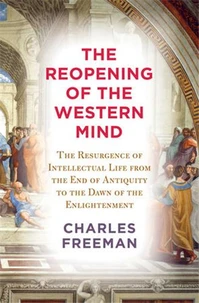In AD 381, Theodosius, emperor of the eastern Roman empire, issued a decree in which all his subjects were required to subscribe to a belief in the Trinity of the Father, Son and Holy Spirit. This edict defined Christian orthodoxy and brought to an end a lively and wide-ranging debate about the nature of the Godhead; all other interpretations were now declared heretical. Moreover, for the first time in a thousand years of Greco-Roman civilization free thought was unambiguously suppressed.
Yet surprisingly this political revolution, intended to bring inner cohesion to an empire under threat from the outside, has been airbrushed from the historical record. Instead, it has been claimed that the Christian Church had reached a consensus on the Trinity which was promulgated at the Council of Constantinople in AD 381. In this groundbreaking new book, Freeman argues that Theodosius's edict and the subsequent suppression of paganism not only brought an end to the diversity of religious and philosophical beliefs throughout the empire but created numerous theological problems for the Church, which have remained unsolved.
The year AD 381, Freeman concludes, marked 'a turning point which time forgot'.
In AD 381, Theodosius, emperor of the eastern Roman empire, issued a decree in which all his subjects were required to subscribe to a belief in the Trinity of the Father, Son and Holy Spirit. This edict defined Christian orthodoxy and brought to an end a lively and wide-ranging debate about the nature of the Godhead; all other interpretations were now declared heretical. Moreover, for the first time in a thousand years of Greco-Roman civilization free thought was unambiguously suppressed.
Yet surprisingly this political revolution, intended to bring inner cohesion to an empire under threat from the outside, has been airbrushed from the historical record. Instead, it has been claimed that the Christian Church had reached a consensus on the Trinity which was promulgated at the Council of Constantinople in AD 381. In this groundbreaking new book, Freeman argues that Theodosius's edict and the subsequent suppression of paganism not only brought an end to the diversity of religious and philosophical beliefs throughout the empire but created numerous theological problems for the Church, which have remained unsolved.
The year AD 381, Freeman concludes, marked 'a turning point which time forgot'.

 , qui est-ce ?
, qui est-ce ?